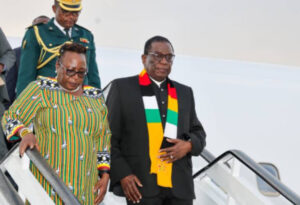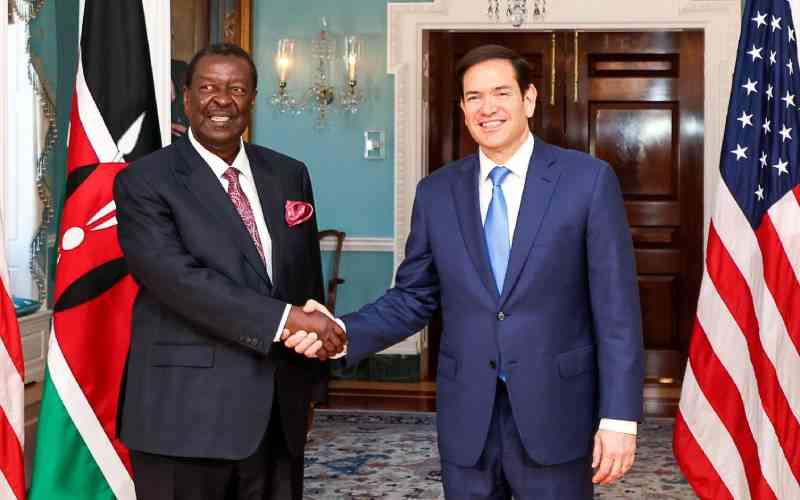Kenya has protested a new directive by Tanzania barring non-citizens from operating in several business sectors, warning it violates the East African Community (EAC) treaty and threatens progress made on regional integration.
The protest comes just a day after Tanzania published a legal order under the Business Licensing Act (Cap. 101), titled the Business Licensing (Prohibition of Business Activities for Non-Citizens) Order, 2025.
Signed by Minister for Industry and Trade Selemani Saidi Jafo, the directive was published through Government Notice No. 487A on Monday, July 28. It defines a non-citizen in line with the Tanzania Citizenship Act and was made under Section 14A(2) of the law.
The order prohibits non-citizens from engaging in 15 specific business activities. It targets small and informal sectors such as kiosks, small shops, and micro and small industries, which the Tanzanian government now seeks to reserve exclusively for its citizens.
It also affects mobile money services, electronics repair, cleaning services, and salon operations unless linked to tourism or hotels.
The ban further extends to small-scale mining, on-farm and off-farm crop purchasing, tour guiding, and postal and parcel delivery services.
Real estate brokerage, clearing and forwarding, gambling outside licensed casinos, and the running of museums or curio shops are also restricted. Non-citizens are additionally barred from publishing or operating radio and television stations.
Licensing authorities have been instructed not to issue or renew permits for these businesses. Those in breach face fines of not less than 10 million Tanzanian shillings (Sh495,000), up to six months in jail, and revocation of residence or work permits.
Tanzanian citizens who aid non-citizens face a fine of up to five million shillings or three months’ imprisonment. However, foreigners with valid licences may continue operating until their current licences expire.
East African Community Affairs Principal Secretary Caroline Karugu criticised the directive as a clear breach of Articles 13(1), 13(3)a, 13(5), 13(8), and 13(9) of the EAC Common Market Protocol, which guarantee free movement of persons, services, and the right of establishment for citizens of partner states.
“The order undermines the objectives of regional economic integration and reverses gains made under the EAC Common Market Protocol,” Karugu emphasised.
She confirmed that Kenya has written to the EAC Secretariat, requesting Tanzania to review the directive to ensure it complies with community law.
A section of Kenyan political and business leaders has condemned the move, warning that it risks harming cross-border trade and bilateral relations. Murang’a Senator Joe Nyutu claimed Tanzania was deliberately targeting Kenyans, citing a pattern of hostility dating back to the presidency of John Magufuli.
“The hostility by Tanzania towards foreigners is directed at Kenyans, because we do not see Tanzanians treat other nationals from other countries the way they treat Kenyans,” Nyutu observed during a local television interview.
Stay informed. Subscribe to our newsletter
“And it is not only during the reign of President Suluhu. Remember the Magufuli incident involving Kenyan cattle.”
Kenya Coast Tourism Association Chairman Victor Shitakha labelled the move divisive. “This kind of decision will only alienate the countries,” he warned.
Dr Sam Ikwaye, Executive Officer of the Kenya Association of Hotelkeepers and Caterers, urged Tanzania to uphold regional integration, arguing that no country can thrive in isolation.
Foreign Affairs Cabinet Secretary Musalia Mudavadi confirmed Kenya is engaging in diplomacy to resolve the matter.
“I have personally called the Minister of Foreign Affairs of Tanzania, and President William Ruto, as chair of the EAC summit, has also had a conversation with both President Samia Suluhu and Tanzania’s Minister of Trade. We are using diplomatic channels to address that issue,” he disclosed.
Cabinet Secretary for Investments, Trade and Industry Lee Kinyanjui described the directive as discriminatory and harmful to the spirit of integration.
“The measures taken by Tanzania are substantive and undermine the core objective of regional economic integration under the Common Market Protocol,” Kinyanjui noted.
He warned that the directive criminalises lawful EAC investments and risks damaging both economies.
Experts also weighed in. Dr Edgar Githua, an international relations analyst, argued that the order reflects Tanzania’s reluctance to fully embrace EAC obligations.
“They feel they are not yet ready to integrate their society and economy fully with what the protocol dictates because they are left behind,” he explained.
“They have begun this protection using their businesses and jobs because they feel Kenya and Uganda’s human resources are more educated.”
According to Githua, the move could destabilise the region’s integration efforts. “This comes at the cost of and risk of messing up with the integration we are building,” he observed, urging other EAC member states to raise the issue at the East African Legislative Assembly.
The directive has also sparked sharp online backlash among Kenyan citizens, many of whom accused Tanzania of protectionism that contradicts the shared vision of the EAC bloc.

























